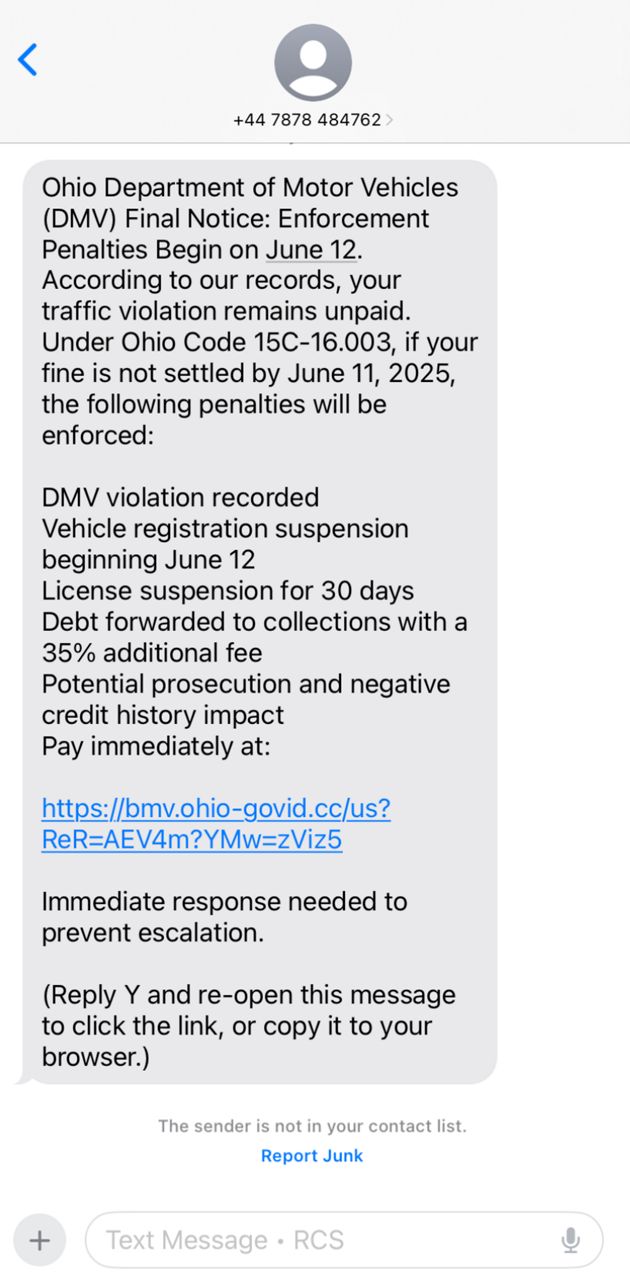OHIO — The latest scam text involving the Ohio Bureau of Motor Vehicles (BMV) is circulating nationwide. Scammers claiming to be from the BMV are trying to trick Ohioans and residents from other states into giving them their personal or financial information.
The text reads in part:
“Оhio Dеpartment оf Motor Vehicles (DMV) Fіnal Νotice: Enforсement Penalties Begin оn June 12. Αсcording to our records, your trаffic violation remаins unpaid.”
It goes on to threaten to suspend Ohioans’ vehicle registrаtions and licenses.

Charlie Norman, Ohio’s Registrar of Motor Vehicles, said it is a phishing scam trying to trick you into giving your personal or financial information.
He said if you receive this text, ignore it and delete it as the BMV will never contact you requesting personal or financial information.
“I think the important thing on this one, whether it’s this text or the next one to come down the line, though, is remember, BMV will never send you an unsolicited text message, asking for your personal information or payment or threatening to suspend your driver’s license,” Norman said. “So, you only get text from BMV for things you signed up for. So, you know, you may sign up for a text to get a reminder that your driver’s license is due for renewal, or that your vehicle registration is due, or that it’s time to come up to the counter and be served. So those would be texts you, you want and expect and we’ll certainly never, never demand that information from you.”
Norman said often in these types of texts you can see a lot of red flags, like poor grammar or misspelled words.
“They all sort of follow this same pattern, right? There’s a threatening tone, there’s an abnormal sense of urgency to take action, to do something, so if you don’t do A then we will do B,” Norman said. “It cites a section of the revised code that doesn’t exist. Often if you look at that link that they want you to click, it’s a domain that if you look closely, it’s not the domain of the actual website they say they’re sending you to. So there are really some telltale signs and some red flags and these kinds of texts.”
If you clicked on the link and believe you have been a victim of a scam, he said you should contact your bank, report the scam to the Federal Trade Commission and contact your local law enforcement agency.






